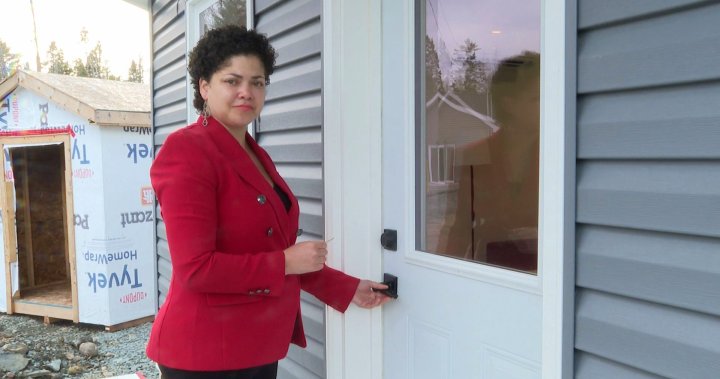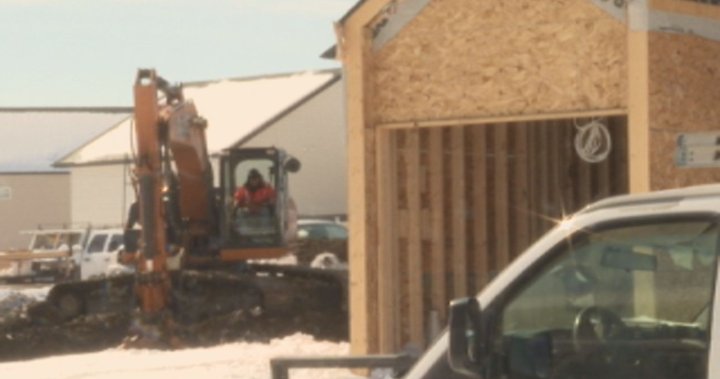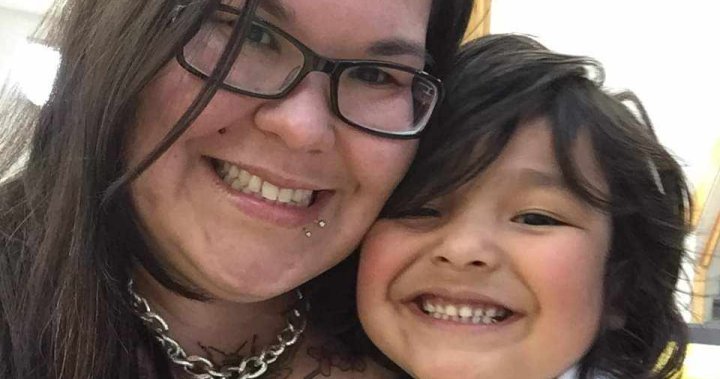This is the third instalment of a Global News series called ‘On The Brink,’ which profiles people who are struggling with the rising cost of living. In this story, a woman from North Preston tells us how she was able to find a home for her and her daughter through a program geared to the African Nova Scotian community.
Michelle Simmons knows what it’s like to be on the brink.
Originally from the African Nova Scotian community of North Preston, Simmons spent the last 20 years living in Ontario, where she raised her 10-year-old daughter.
She decided to move back to her home province after having trouble finding housing in Ontario, but found herself in a similar situation in Nova Scotia.
“I was going through a really rough situation with not having housing, and I moved back to Nova Scotia and I was having a hard time finding housing as well,” she said.
Trying to make ends meet to support herself and her 10-year-old daughter was “stressful,” Simmons said.
In the past, she was forced to sell off many of her belongings to make rent. She said it’s especially difficult to afford life as a single parent of a child with special needs.
“When you’re one person trying to take care of everything, it’s very expensive,” she said. “It becomes very challenging. If there was a second income it would definitely be much more helpful.”
After coming back to Nova Scotia, Simmons spent some time living with family in Cole Harbour and Preston while she tried to find a place to live.
But places to live were few and far between, and way outside of her price range.
“The price of housing … it was just outrageous,” she said. “Just places for really high rent and a small space.”
Most of the two-bedroom apartments she could find were almost $2,500 a month. She was also shocked by where these pricey apartments were located – she would have expected a high price in the downtown core, but not where she was looking in Dartmouth.
“Like, if you’re going to live in downtown Toronto, you know you’re going to pay X amount of dollars to have that,” she said. “But some of the places – even just in Dartmouth, where there’s not too much there in terms of things to do – the prices were still sky-high.
“It was very stressful not finding anything within my means.”
That’s why it was such a relief to be able to find housing through a “by us, for us” program for the African Nova Scotian community.
Simmons and her daughter are one of eight families slated to move into a new community in the Westphal area called Fairfax Homes, developed by Akoma Holdings Inc.
“Now I can finally say that I do have something for myself and my daughter, and it’s a great space,” she said.
‘A human rights issue’
Sunday Miller, a property consultant with Akoma, said the barriers in obtaining housing for African Nova Scotians are especially high due to intergenerational inequities and systemic racism over decades, from the mistreatment of the province’s first Black loyalists to the segregation of schools.
“Housing is a human rights issue. And unfortunately, people of African descent have struggled with homelessness from the first moment they came,” she said.
According to a provincial housing needs assessment report, Black and African Nova Scotians are less likely to own their homes than the general population. They are also more likely to live in supportive housing or be unhoused, and are more likely to experience discrimination when trying to access housing.
“Nearly 42 per cent of survey respondents stated that they had experienced discrimination, and of that group, 65 per cent cited racial discrimination,” the report said.
More than half of Black or African Nova Scotian respondents said they had gone without heat to pay their rent or mortgage, compared with just 14 per cent of the general population.
“We’re very much aware of what people of African descent go through when they’re trying to find housing,” Miller said, “and it’s not just in HRM, it’s in the province.”
Miller said Akoma’s Fairfax Homes community came about because of the need for more affordable housing options for African Nova Scotians.
“We want to build ‘by us and for us,’ because we need to remove the barriers,” she said. “It’s very difficult for people to be creative and to achieve their potential if they’re struggling with the basics of survival.”
The project, developed through funding from the Rapid Housing Initiative, aims to help those who are most “precariously housed,” like those staying in shelters or couch-surfing.
“It’s been something that we’ve been struggling with for a long time, and now we are in a position to be able to make a difference,” Miller said.
“We need to be able to access the funding that’s out there so that we can build and provide good housing and opportunities for people of African descent who have been, for the longest time, shut out.”
Rent for the homes is between $650 and $1,000 a month and is geared to income. The community will also include additional supports, like a family support worker.
There is no limit on how long people can stay, but Miller said the goal is to help tenants realize their true potential by removing barriers and helping them to thrive, not just survive.
“We are hoping and believing that (for) those who move in, this is just the first step,” she said. “We are hoping that … they will actually get to dream again and have a greater vision for their life, once they are no longer dealing with survival.”
Some of those life visions could be going back to school, or even getting the chance to save up and buy their own home.
For Simmons, the idea of buying her own home had been getting further and further out of reach.
“I wasn’t able to save and get that down payment because everything is so expensive, you’re pretty much living cheque to cheque,” she said. “So, where is the savings coming from?”
But things are looking a little brighter now with a safe, affordable place to call home and raise her daughter close to the community she loves. Simmons hopes they can move in by the holidays.
“It’s just a feeling of relief, a feeling of pride that we have something of our own, something that I can actually afford on my own and to be able to take care of my daughter,” she said.
“It’s just an overwhelming feeling of joy.”




